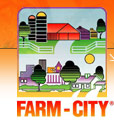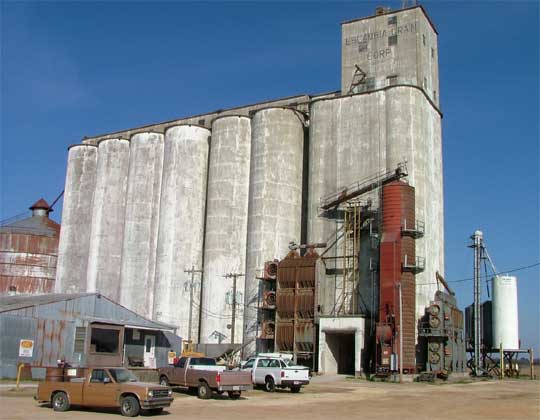Farm-City Week Recognizes Importance Of Local Agriculture
November 20, 2011
Residents of northwest Florida will have an opportunity to get closer to their food this Thanksgiving.
That’s because the week of Thanksgiving is National Farm-City Week. Local communities across America will be celebrating and spreading agricultural awareness through this annual movement, which focuses on connecting rural and urban dwellers.
The movement is sponsored by the National Farm-City council, which has been dedicated to organizing the event since 1955.
In recent years local events for Farm-City Week have been coordinated by a community partnership located in Santa Rosa County.
 “We got involved back in 2010 to raise awareness about the value of agriculture to our local region,” University of Florida’s West Florida Research and Education Center Director and Professor Dr. Jeff Mullahey states.
“We got involved back in 2010 to raise awareness about the value of agriculture to our local region,” University of Florida’s West Florida Research and Education Center Director and Professor Dr. Jeff Mullahey states.
This will be the second year that the center has partnered with community organizations like the Bay Area Food Bank to sponsor a food distribution event that provides Thanksgiving dinner to resource-limited families in the area. The Bay Area Food Bank manages the pre-qualification process for families hoping to benefit from the event, while the center organizes food donations and harvest. The Santa Rosa County Extension Service will provide recipes and instructions on how to prepare the locally grown produce. , which will take place the Tuesday of Thanksgiving week.
“Some of the food is locally grown, which is really nice,” Mullahey continues. This year local produce will be provided by Barnhill Farms and Steve’s Farm.
Mullahey states that the main goal for the Farm-City Week is to “create more awareness about the importance and value of agriculture in northwest Florida, and to promote the benefits of agriculture as more than a source of food and fiber.”
While the healthcare and military industries may be the most visible in our regional economy, agriculture remains a top player. According to a 2008 study conducted by the University of Florida agriculture and natural resources directly provided 44,249 jobs to the northwest Florida region (consisting Escambia, Okaloosa, Santa Rosa and Walton counties). For perspective, compare that number to the estimated population of 51,923 within Pensacola city limits.
The study goes on to state that for every $1 million of revenue created by agriculture and natural resources, the industry creates 13.72 jobs. In 2008 the industry created over $357 million in revenue, roughly a quarter of which was paid out as labor income.
 Part of the Farm-City movement is to encourage local communities to spend locally, by getting to know local farmers and purchasing local produce. By buying local produce, consumers can ensure that more money stays in the area. Buying locally also reduces the overall cost of food and production, which increases with every mile the food travels from producer to consumer. Shipping and processing are two unseen costs that raise the price of imported produce, while local produce either cuts down or cuts out these costs.
Part of the Farm-City movement is to encourage local communities to spend locally, by getting to know local farmers and purchasing local produce. By buying local produce, consumers can ensure that more money stays in the area. Buying locally also reduces the overall cost of food and production, which increases with every mile the food travels from producer to consumer. Shipping and processing are two unseen costs that raise the price of imported produce, while local produce either cuts down or cuts out these costs.
Consumers are also encouraged to educate themselves about where their food comes from and how it is produced by local farmers in NW Florida. Locally grown food is sold at farmers markets, roadside stands, retail markets, and on-line.
Agriculture creates jobs, adds money to the local economy and provides environmental benefits, like green space, that improve the quality of life in northwest Florida.
“Not to mention,” Mullahey adds, “agriculture feeds us three times a day and provides clothes for our family.”
Pictured top: Wheat is one of the crops produced in North Escambia. Pictured inset: Escambia Grain in Walnut Hill. NorthEscambia.com file photos, click to enlarge.




Comments